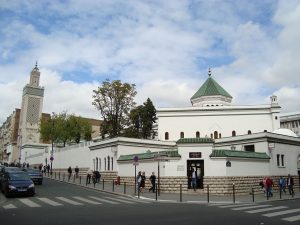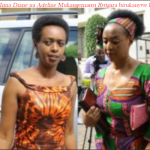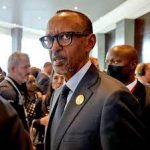Last week Austria ordered the first foreign-funded imam to be expelled when his visa expires. The decision was made under the new provisions of an anti-radicalization law, which Austria passed one year ago under considerable controversy. The main aim of the law is to counter extremism by requiring imams to speak German, and to prohibit foreign funding for mosques, imams and Muslim organizations in Austria. It also stresses that Austrian law must take precedence over Islamic sharia law for Muslims living in the country.
“We want a future in which increasing numbers of imams have grown up in Austria speaking German, and can in that way serve as positive examples for young Muslims,” said Integration Minister Sebastian Kurz, who helped draft the law. Another 65 imams are expected to be deported in the coming weeks, after being informed that their visas will not be renewed. The decision to deport the foreign imam has — predictably — been deemed unconstitutional by Austria’s Constitutional Court, which finds the law discriminatory because it targets only Muslims.
In a similar vein, the Belgian government recently earmarked €3.3 million to be able to pay the wages of 80 new imams in order to “help stimulate a moderate European form of Islam,” reported the Flemish daily newspaper De Standaard last week. Justice Minister Koen Geens said that official recognition of mosques forms “part of our strategy to promote a more integrated form of Islam,” one intended to counter radicalization, violent extremism and terrorism. He added: “A recognized mosque is a sign of an integrated Islam. In the fight against radicalization, it is important that young people don’t drift into the arms of radical mosques. This also provides us with more interlocutors.”
Last year, the news outlet Antwerpen revealed that a young Moroccan imam who had preached in the officially recognized “moderate” mosque, the Dome in Borgerhout, had gone to Syria with two other men to join the jihadists. Youssef El G. — the imam in question — had not been monitored, because the mosque was considered moderate. The police said his departure came as a surprise.
Encouraging Muslims toward a more moderate “European” Islam is an old idea, but has not yet succeeded in practice anywhere in Europe and its specific nature remains largely undefined.
In France, the concept of a “French Islam” was put to the test in 2003, when Nicolas Sarkozy, then interior minister, created the French Council for the Muslim Religion (CFCM) to help address issues such as imam training, mosque building and regulating halal slaughter. The purpose was to encourage a homegrown, liberal version of Islam. “What we should be afraid of is Islam gone astray, garage Islam, basement Islam, underground Islam. It is not the Islam of the mosques, open to the light of day,” Mr. Sarkozy said at the time.
The project of a “French Islam” has failed abysmally. Already in 2011 a 2,200-page report, “Banlieue de la Republique” (Suburbs of the Republic), commissioned by the influential French think tank L’Institut Montaigne — directed by Gilles Kepel, a well-known political scientist and specialist in the Muslim world — concluded that Muslim immigrants in France were increasingly rejecting French values and identity, and instead immersing themselves in Islam. The report also warned that Islamic sharia law was rapidly displacing French civil law in many parts of suburban Paris.
The report showed how radical Muslim leaders in France, who are promoting the social marginalization of Muslim immigrants in order to create a parallel Muslim society ruled by sharia law, are exacerbating the problem. The report described a proliferation of mosques and prayer rooms in the suburbs. The religious orientations of the mosques were already heavily influenced by the national origin of the founder or president of a given mosque, in other words, not nearly close to any “French” Islam, regardless of what that concept might actually contain.
Indeed, according to Reuters, only 25-30 percent of practicing imams in France are French nationals. Many do not speak French and have no knowledge of French law or customs. According to Abdelali Mamoun, an imam of Alfortville, just outside Paris, of the roughly 2,500 mosques in France, 800 are Moroccan, 600 Algerian and 400 Turkish-linked. The Grand Mosque in Paris, for example, was assigned to Algeria’s trusteeship by the French government in 1957. Since 1982, Algeria has been responsible for funding the Grand Mosque. Only between 30% and 40% of the mosques in France are independent, says Mamoun. He defines independent mosques as institutions that set out to serve all Muslim communities, that are not sponsored from abroad and do not have imams imported and paid from abroad.

The Grand Mosque in Paris was assigned to Algeria’s trusteeship by the French government in 1957. Since 1982, Algeria has been responsible for funding the Grand Mosque. (Image source: Wikimedia Commons) |
Nevertheless, France still holds onto the idea of a French “moderate” Islam. In March 2015, in the wake of the terrorist attacks on the satirical magazine Charlie Hebdo and the concern about the influence of radical foreign imams on Muslims in France, French Prime Minister Manuel Valls announced that France would finance double the number of university courses on Islam — from six to twelve — to stop the influence of foreign funding on the training of French imams.
Valls said he wanted more imams and other religious figures, such as prison chaplains, who have been trained abroad to “undergo more training in France, to speak French fluently and to understand the concept of secularism” that is a core pillar of French Republican values. “The only response to the dangers that we face is the French Republic,” Valls said. “This means the acceptance of the secular state, improving education, universities, understanding and intelligence… But there will be no laws, decrees or government directives to define what Islam means,” Valls said. “The French state will never attempt to take control of a religion.”
After the Paris attacks in November 2015, Anouar Kbibech, president of the French Council for the Muslim Religion, said it would fight extremists by creating a permit to preach for imams, as well as a new religious body to fight jihadist propaganda. The certificate would be given to those imams who promote a “tolerant and open Islam.”
“The time for action has come. The Muslims of France will play their part,” said Kbibech. Actually, the time for action was over more than a decade ago, in 2003, at the founding of the CFCM. By now, any action is probably too little, much too late.
The pattern of “importing” imams with no knowledge of the local European languages and customs is the same all over Europe. Qatar and Saudi Arabia, where the official form of Islam is Wahhabism, are the main financiers of mosques in Europe. Qatar has financed mosques in France, Italy, Ireland and Spain, among other places, thus spreading Wahhabism across the continent. Wahhabism is a version of Sunni Islam that discourages Muslim integration in the West, but actively encourages jihad against non-Muslims. The former emir of Qatar, Sheikh Hamad bin Khalifa al-Thani, vowed a few years ago to “spare no effort” to spread the fundamentalist teachings of Wahhabi Islam across “the whole world.”
In October 2014, General Jonathan Shaw, a former commander of British Forces in Iraq, who retired as Assistant Chief of the Defence Staff in 2012, told The Telegraph that Qatar and Saudi Arabia were primarily responsible for the rise of the extremist Islam that inspires Islamic State terrorists by funding the global spread of radical Islam. “The root problem is that those two countries are the only two countries in the world where Wahhabi Salafism is the state religion – and Isil is a violent expression of Wahhabist Salafism,” said Gen. Shaw.
In December 2015, German vice-chancellor Sigmar Gabriel said that the Saudi regime is funding extremist mosques and communities that pose a danger to public security. “We have to make clear to the Saudis that the time of looking away is over… Wahhabi mosques all over the world are financed by Saudi Arabia. Many Islamists who are a threat to public safety come from these communities in Germany,” the vice-chancellor said. In addition to the mosques it has already built, Saudi-Arabia offered to build an additional 200 mosques for the benefit of the mass migration of Muslims into Germany, one for every 100 migrants and refugees entering the country.
The question that invariably arises is whether European governments genuinely believe in the possibility of a moderate “European Islam” in the face of the failure that attempts to bring about such a concept, still largely undefined, have met with thus far.
Considering the massive Muslim radicalization with which the continent is faced, much of it homegrown — the head of Europol said last week that the terror threat in Europe is the highest in over a decade — trying to foster a hazy concept of a “moderate” European Islam at this late point is like trying to stem a tidal wave with a band-aid.
In some European countries, the most basic concepts of how Islamic radicalization works are seemingly not even understood by the relevant judicial authorities. Denmark’s State Prosecutor recently decided that imam Hajj Saeed will not be prosecuted for his statements in a sermon where he incited Muslims to wage war against Jews, and said that the Western “infidel” civilization has led non-Muslims “to an abyss of deprivation and corruption and has reduced them from being human to being at the level of animals.” Saeed incited war against Jews at a mosque associated with Hizb ut-Tahrir in Copenhagen on February 13, 2015 — in the very same sermon that the terrorist Omar Abdel Hamid El-Husseini attended the day before he murdered two people in separate terrorist attacks at the local synagogue and at a café.
The Danish State Prosecutor, in her decision, writes that the imam’s statements,
“…were part of a sermon about interfaith dialogue. It is my assessment that the statements regarding war against Jews must be understood in that context and as a historical reference to the reaction of the prophet Muhammed in a particular historical situation. It therefore cannot be assumed that this was a direct encouragement to attack Jews. I therefore do not find that there is sufficient evidence to find the imam guilty of breaching § 266b and I do not find that further investigation will bring such evidence.”
The sermon had been organized by Hizb ut-Tahrir, a radical organization that works for the re-establishment of the caliphate — not for “interfaith dialogue.”
When investigations against imam Hajj Saeed began in March 2015, after a private Danish citizen filed a complaint, Hizb ut-Tahrir told Danish journalists that the complaint against the imam was baseless: “The sermon refers to a historical context and it is taken out of context… He has not incited to violence or murder. He is just referring to a historical event.” Conspicuously, Hizb ut-Tahrir’s “explanation” ended up being exactly what the state Prosecutor decided in the end.
It is noteworthy that several European governments have finally come to the realization that foreign funding of local mosques and imams is counterproductive to the security of their states and that it is essential that this foreign funding and training of foreign imams stop. Based on previous experience, however, the hope that a “European Islam” will be fostered is a vain and rather utopian one. In Belgium, the existence of a state-recognized “Belgian mosque” did not stop the “moderate” imam in question from traveling to Syria to join the jihadists there.
Judith Berman is a journalist based in the Middle East.

























